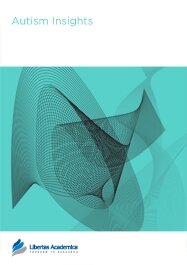

Publication Date: 12 Feb 2010
Type: Editorial
Journal: Autism Insights
Citation: Autism Insights 2010:2 13-15
doi: 10.4137/AUI.S4489

Is gastrointestinal disease more prevalent in children with autism? There are arguments favoring both sides of the controversy. We present data collected from the medical history of a recent Autistic Genetic Resource Exchange (AGRE) database of autistic children and their siblings, demonstrating that autistic children may be significantly more susceptible to overall GI disease, as well as chronic diarrhea and constipation specifically. Many autistic children have GI disease, however, whether this disease is significantly increased in children with autism is still being debated.
PDF (458.35 KB PDF FORMAT)
RIS citation (ENDNOTE, REFERENCE MANAGER, PROCITE, REFWORKS)
BibTex citation (BIBDESK, LATEX)
This is the most author-friendly process I have experienced. The staff were very attentive to us and kept us posted at every step of the process. They were great to work with. I commend the editorial staff for their professionalism and dedication to science and scientific publishing.

All authors are surveyed after their articles are published. Authors are asked to rate their experience in a variety of areas, and their responses help us to monitor our performance. Presented here are their responses in some key areas. No 'poor' or 'very poor' responses were received; these are represented in the 'other' category.See Our Results
Copyright © 2013 Libertas Academica Ltd (except open access articles and accompanying metadata and supplementary files.)
Facebook Google+ Twitter
Pinterest Tumblr YouTube